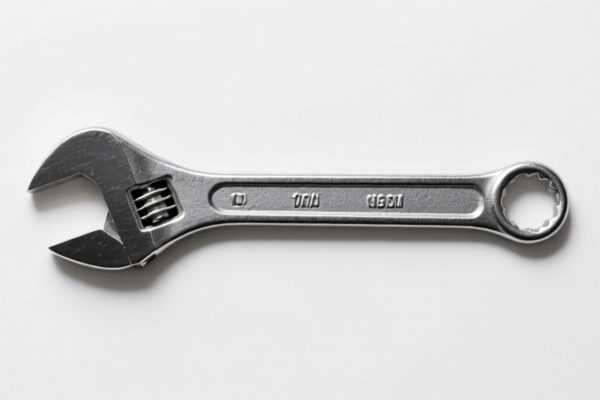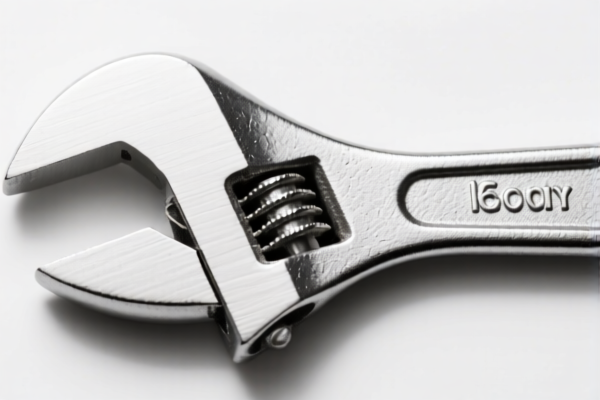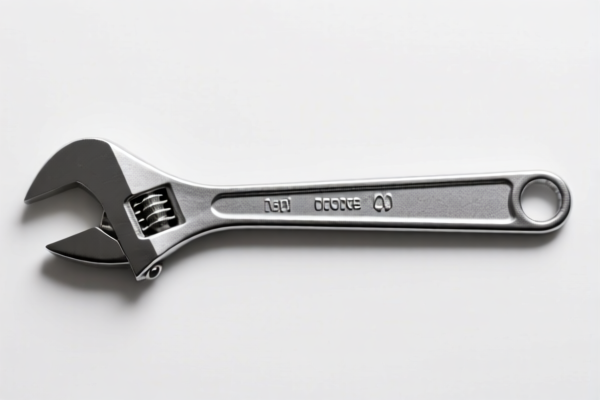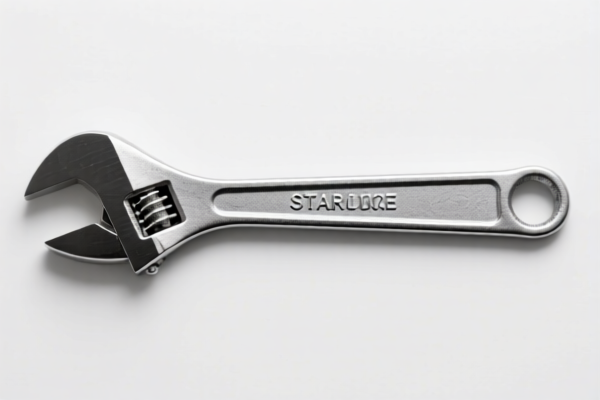| HS Code | Official Doc | Tariff Rate | Origin | Destination | Effective Date |
|---|---|---|---|---|---|
| 8467115040 | Doc | 55.0% | CN | US | 2025-05-12 |
| 8487900080 | Doc | 83.9% | CN | US | 2025-05-12 |
| 8487900040 | Doc | 58.9% | CN | US | 2025-05-12 |
| 7326908688 | Doc | 82.9% | CN | US | 2025-05-12 |
| 7326908688 | Doc | 82.9% | CN | US | 2025-05-12 |
| 8204200000 | Doc | 64.0% | CN | US | 2025-05-12 |
| 8204110060 | Doc | 64.0% | CN | US | 2025-05-12 |
| 8207904500 | Doc | 34.8% | CN | US | 2025-05-12 |
| 8207906000 | Doc | 59.3% | CN | US | 2025-05-12 |




Wrench Sleeve
A wrench sleeve, often simply called a sleeve, is a tool used to tighten or loosen fasteners, typically nuts and bolts. It is a hollow cylindrical tool with a specific internal profile that grips the head of the fastener. Sleeves are commonly used in conjunction with a ratchet handle, a torque wrench, or a breaker bar to provide mechanical advantage and facilitate the turning of fasteners.
Material
Sleeves are commonly manufactured from the following materials:
- Chrome Vanadium Steel (Cr-V): This is the most common material due to its high strength, durability, and resistance to corrosion.
- Carbon Steel: Less expensive than Cr-V, but also less durable and more susceptible to rust. Often coated with chrome for protection.
- Alloy Steel: Used in specialized applications requiring higher strength or specific properties.
- Impact-Rated Steel: Specifically hardened to withstand the high forces generated by impact wrenches.
Purpose
The primary purpose of a wrench sleeve is to provide a secure and efficient method for tightening or loosening fasteners without damaging them. They offer several advantages over open-end or box-end wrenches:
- Reduced Risk of Rounding: The enclosed design distributes force evenly around the fastener head, minimizing the chance of rounding the corners.
- Greater Torque: Sleeves allow for higher torque application, particularly when used with a ratchet or breaker bar.
- Faster Operation: Ratchet handles enable continuous turning without removing and repositioning the tool.
Function
Sleeves function by gripping the external faces of a fastener head. The internal profile of the sleeve is precisely matched to the shape of the fastener head, providing a tight and secure fit. Turning the sleeve applies rotational force to the fastener, causing it to tighten or loosen. The ratchet mechanism (when used) allows the tool to be rotated in one direction while engaging the fastener, and then rotated back without disengaging, making the process faster and more efficient.
Usage Scenarios
Wrench sleeves are used in a wide variety of applications, including:
- Automotive Repair: Essential for engine work, suspension repairs, brake service, and general maintenance.
- Construction: Used for assembling and disassembling structures, machinery, and equipment.
- Plumbing: Tightening and loosening pipe fittings and connections.
- HVAC: Working on heating, ventilation, and air conditioning systems.
- General Mechanical Work: Any task requiring the tightening or loosening of nuts and bolts.
Common Types
- 6-Point Sleeves: Provide the strongest grip and are less likely to slip or round fasteners, especially in high-torque applications. Preferred for stubborn or heavily corroded fasteners.
- 12-Point Sleeves: Offer more versatility as they can fit both six-point and twelve-point fasteners. However, they have a smaller contact area and are more prone to rounding fasteners.
- Shallow Sleeves: Used for fasteners in recessed areas where a deep socket won't fit.
- Deep Sleeves: Used for fasteners with long threaded shanks or in areas with limited access.
- Spark Plug Sleeves: Specifically designed to fit spark plugs, often with a rubber insert to protect the ceramic insulator.
- Impact Sleeves: Constructed from hardened steel to withstand the high impact forces of impact wrenches. Usually black oxide coated.
- Torx Sleeves (Star Sleeves): Used for Torx head fasteners, which have a star-shaped profile.
- Metric and SAE: Sleeves are available in both metric and standard (SAE) sizes to accommodate different fastener standards.
- Universal Sleeves: Have a swivel joint to allow access to fasteners at an angle.
- Flex-Head Sleeves: Feature a pivoting head for improved access in tight spaces.
Wrench sleeves generally fall under tools used for manual operation, often with components for driving or extension. Here's a breakdown of relevant HS codes based on the provided information:
-
8204200000: Hand-operated spanners and wrenches (including torque meter wrenches but not including tap wrenches); socket wrenches, with or without handles, drives and extensions, and parts thereof. This code specifically covers hand-operated spanners and wrenches, including socket wrenches (which sleeves are a type of) with or without handles, drives, and extensions.
- 82: Hand tools, pneumatic, hydraulic or with self-contained electric or non-electric motor.
- 04: Spanners and wrenches, and parts thereof.
- 200000: Hand-operated spanners and wrenches (including torque meter wrenches but not including tap wrenches); socket wrenches, with or without handles, drives and extensions, and parts thereof.
-
8204110060: Hand-operated spanners and wrenches (including torque meter wrenches but not including tap wrenches); base metal parts thereof: Hand-operated spanners and wrenches, and parts thereof: Nonadjustable, and parts thereof Other (including parts). This code covers non-adjustable hand-operated spanners and wrenches, and their parts. Sleeves, being non-adjustable, could fall under this code.
- 82: Hand tools, pneumatic, hydraulic or with self-contained electric or non-electric motor.
- 04: Spanners and wrenches, and parts thereof.
- 110060: Hand-operated spanners and wrenches, and parts thereof: Nonadjustable, and parts thereof Other (including parts).
-
8207904500: Interchangeable tools for handtools, whether or not power operated, or for machine-tools (for example, for pressing, stamping, punching, tapping, threading, drilling, boring, broaching, milling, turning or screwdriving), including dies for drawing or extruding metal, and rock drilling or earth boring tools; base metal parts thereof: Other interchangeable tools, and parts thereof: Other: Other: Suitable for cutting metal, and parts thereof. If the wrench sleeves are designed for cutting metal, this code may be applicable.
- 82: Interchangeable tools for handtools, pneumatic, hydraulic or with self-contained electric or non-electric motor.
- 07: Interchangeable tools for handtools, or for machine-tools.
- 904500: Other interchangeable tools, and parts thereof: Other: Other: Suitable for cutting metal, and parts thereof.
-
8207906000: Interchangeable tools for handtools, whether or not power operated, or for machine-tools (for example, for pressing, stamping, punching, tapping, threading, drilling, boring, broaching, milling, turning or screwdriving), including dies for drawing or extruding metal, and rock drilling or earth boring tools; base metal parts thereof: Other interchangeable tools, and parts thereof: Other: Other: Not suitable for cutting metal, and parts thereof: For handtools, and parts thereof. If the wrench sleeves are not designed for cutting metal, this code may be applicable.
- 82: Interchangeable tools for handtools, pneumatic, hydraulic or with self-contained electric or non-electric motor.
- 07: Interchangeable tools for handtools, or for machine-tools.
- 906000: Other interchangeable tools, and parts thereof: Other: Other: Not suitable for cutting metal, and parts thereof: For handtools, and parts thereof.
Regarding HS code 8204200000, 8204110060, 8207904500 and 8207906000, the total tax rate is 64.0%, 64.0%, 34.8% and 59.3% respectively.
Customer Reviews
No reviews yet.